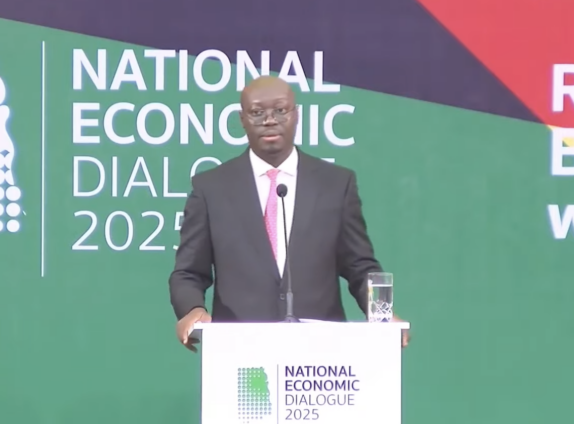The John Mahama government has recorded significant financial savings of approximately GH¢1 billion following a reduction in Treasury bill (T-bill) rates, according to the Minister for Finance, Dr. Cassiel Ato Forson.
This announcement was made during the opening session of the National Economic Dialogue on Monday, March 3, where the Finance Minister highlighted the importance of this achievement in stabilizing Ghana’s economy.
Dr. Forson emphasized that the reduction in T-bill rates has provided a major financial reprieve, allowing the government to allocate the savings to critical sectors of the economy. “The recent reduction in T-bills alone is saving Ghana about one billion Ghana Cedis, and that money can be channelled to critical areas of the economy,” he stated.
This move is part of broader efforts to ensure prudent fiscal management, reduce borrowing costs, and create financial flexibility for development initiatives. Lower T-bill rates mean the government will pay less interest on short-term borrowing, thereby easing the strain on public finances.
As Ghana continues to navigate economic challenges, the Finance Minister underscored the need for disciplined financial management. He stressed that implementing effective fiscal measures would help control government expenditure, reduce reliance on borrowing, and free up resources for long-term investments.
According to Dr. Forson, the government remains committed to economic stability and growth through sound financial policies. “We must be disciplined and understand that the short-term gains today have long-term consequences on our country,” he noted. His statement reinforces the administration’s focus on ensuring sustainable economic policies that will benefit future generations.
The National Economic Dialogue
The National Economic Dialogue, currently underway in Accra, has brought together policymakers, economic experts, and stakeholders to discuss strategies for rebuilding Ghana’s economy. The forum serves as a platform to evaluate economic policies, share insights, and propose measures to address the country’s financial challenges, including inflation and public debt.
Dr. Forson reaffirmed the government’s commitment to addressing fiscal imbalances, reducing the national debt, and enhancing revenue generation. The Minister also highlighted that while the reduction in T-bill rates is a significant achievement, further policy interventions would be necessary to strengthen Ghana’s financial position.
Ghana is currently facing several economic difficulties, including high inflation and rising debt levels. These challenges have placed a heavy burden on the government’s finances, requiring urgent reforms to restore stability. The reduction in T-bill rates is part of a broader strategy to lower the cost of borrowing and reduce the country’s debt servicing obligations.
By implementing reforms aimed at improving fiscal responsibility, the government seeks to create an environment conducive to economic growth. Dr. Forson urged stakeholders to support the ongoing economic reforms, noting that achieving financial stability requires collective effort.
The reduction in T-bill rates is expected to have a ripple effect on Ghana’s economy, making it easier for businesses to access credit at lower interest rates. This move is anticipated to encourage private sector investment and boost economic activity.
The government aims to sustain these gains by introducing additional policies that promote economic stability and growth. With a clear focus on fiscal responsibility, the administration is working to ensure that Ghana’s economy remains resilient in the face of global and domestic challenges.
The GH¢1 billion savings achieved through lower T-bill rates marks a significant milestone in Ghana’s economic recovery efforts. This financial reprieve will enable the government to invest in critical sectors, reduce borrowing costs, and strengthen fiscal discipline.
READ ALSO: Absa Bank Ghana Launches Revolutionary SME Banking Suite























